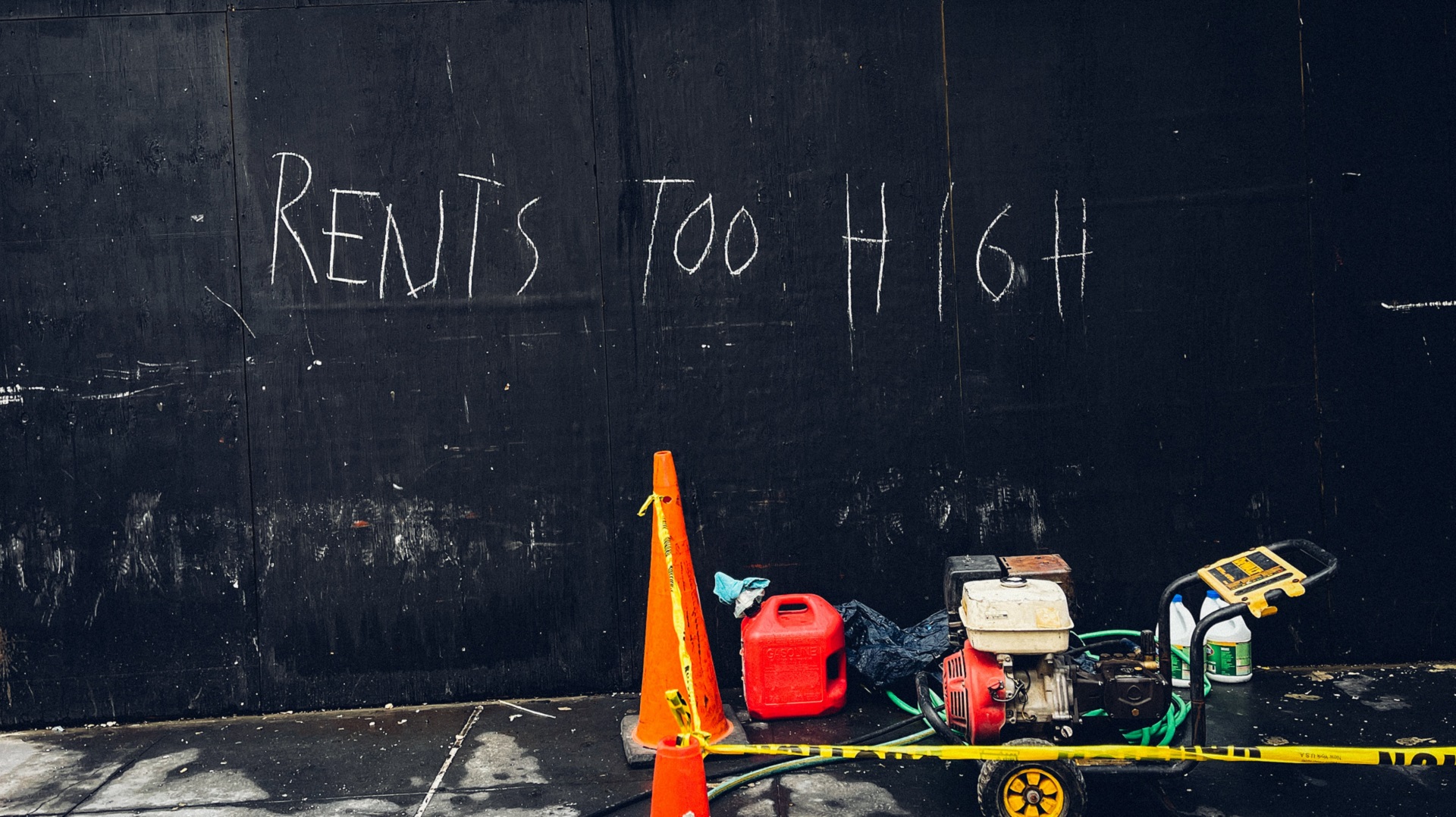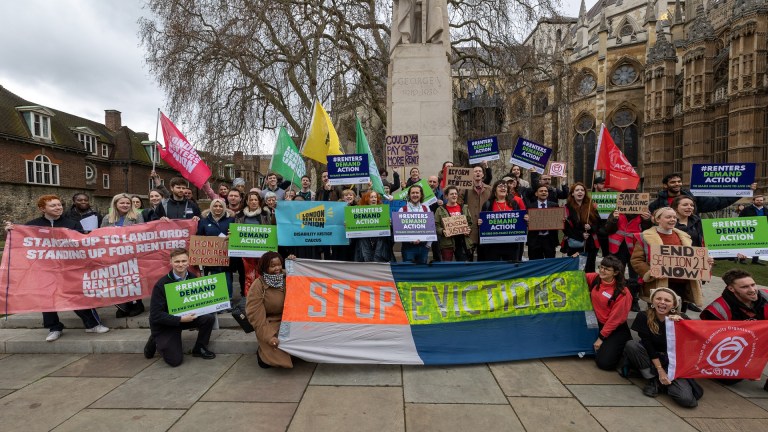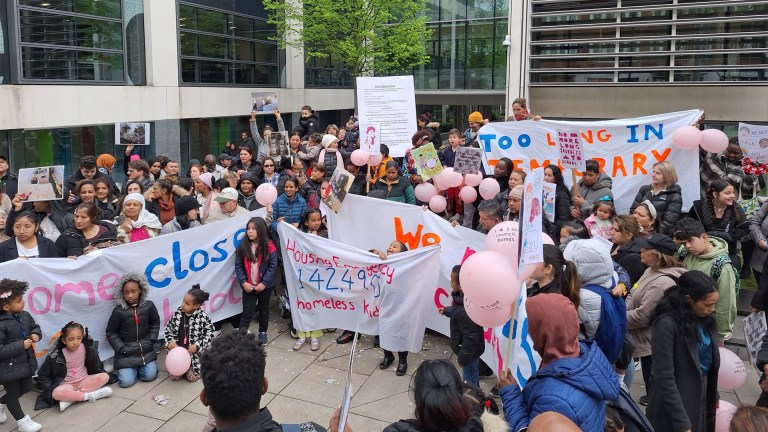Tenants are feeling the pinch regardless whether they move or stay put, according to new data showing rent increases on property sites Zoopla and Rightmove, while the Office for National Statistics has also recorded steep increases to rents mid-tenancy.
The median monthly rent in England between October 2022 and September 2023 was £825 – higher than at any other point on record, according to ONS.
Rents in London have risen at a particularly high rate in the last year – tenants have seen surges of 6.9% in the year up to January – the highest annual rate since ONS first tracked London rents in 2006. Overall, renters in London pay nearly double the median monthly rent for the rest of England at £1,625.
Welsh private renters are also seeing huge increases with the rents typically rising by 7% in the year up to January, albeit down from 7.1% in the previous month.
While the Westminster government has announced reforms to protect renters’ rights through the Renters Reform Bill, which is making slow progress through Parliament. The Big Issue’s End Housing Insecurity Now campaign also urged the government to bring the bill into law at pace a to act to keep low-income tenants in their homes.
But there has been little action on the issues driving rising rents, namely high demand for properties and a lack of supply.
The devolved countries in the UK have engaged with the issue more directly than Westminster. The Scottish government has limited rent increases and banned evictions since September 2022 and is planning to introduce rent controls. The Welsh government is currently consulting on the idea of bringing in rent controls too.
How much is rent in UK?
Around 4.6 million households use the private rented sector in England with 11 million renters.
The private rented sector is now the second biggest tenure of housing in England behind owner occupiers, making around a fifth of all households in the country.
Renters are facing record prices with rents growing at the fastest annual rate for more than a decade.
That has seen renters paying out a higher proportion of their income on housing costs. The English Housing Survey found private renters spend around a third of their household income on rent (rising to 41% in London). That’s more than 10% higher than the proportion paid by owner occupiers.
Renters are almost five times more likely to experience financial hardship than people who own their own home outright, according to ONS.
As of May 2023, around four in 10 renters told statisticians it was difficult to afford their rent payments while almost half of renters and mortgage payers said they had seen their payments increase in the last six months.
Rightmove’s rental tracker found advertised rents hit a record high for a 16th consecutive quarter in the summer of 2023.
Average advertised rents outside London are now 9.2% higher than a year ago at 1,280 a month, according to the property site. In the English capital, rents are 6% higher at 2,631 a month.
Zoopla found rents for new lets have risen almost 10% in the last year with an 11% rise in demand the main driver in the market.
Overall, the property portal found rents for new lets have increased by a third in the last three years, meaning tenants are spending an extra £3,360 a year on average.
It’s not just the private rental sector that has seen rent rises, tenants in social housing saw their rents rise by 7% as of April 2023. The rate at which housing associations can increase or decrease rent is set annually at 1% higher than the current CPI inflation rate.
The government stepped in to cap rent increases at 7% rather than the forecasted 11.1% in 2023-24. Chancellor Jeremy Hunt, who rejected alternative options to cap rent rises at 3 or 5%, announced the cap in his Autumn Statement, insisting the measure will save tenants up to £200 a year.
The government has announced social housing tenants will pay a maximum 7.7% higher rents in 2024/25, based on the 6.7% inflation rate in September 2023.
Why is UK rent so high?
The short answer to why rent is so high is because there is a shortage of affordable housing.
There is a housing crisis in the UK because not enough homes have been built by successive governments in the last few decades at a time where social housing stock has been sold off to the private sector through Right to Buy or demolished and not replaced.
An estimate from the National Housing Federation and Crisis found around 340,000 new homes should be supplied in England each year with 145,000 them to be affordable.
The Conservative government has previously targeted 300,000 new homes in England – a 2019 manifesto commitment – but is yet to hit that mark. In 2021/22, 232,000 new homes were supplied.
Meanwhile areas like Cornwall where tourism has seen a surge in short-term lets through the rise of Airbnb in recent years faces even more pressures on demand.
The private rental sector has picked up the slack in the meantime and has doubled in size over the last two decades.
The stiff competition has seen rents on the market increase but many landlords have kept pace by putting up rents for existing tenants.
While generally speaking there is a shortage of private rental properties across the UK, the difference between supply and demand changes from region to region.
Research from London School of Economics found a 41% reduction in the number of homes available for private rent in London since the pandemic.
“We’re seeing fast-rising private rents and reduced availability of rental properties against a backdrop of continuing cost of living pressures and London’s long-standing shortage of affordable housing,” said Darren Rodwell, London Councils’ executive member for regeneration, housing and planning.
The Office for National Statistics collects data of rental prices from properties in England then revisits every 12 months to assess changes in price.
When statisticians returned to homes in February 2023 they found half had experienced a rent increase. The year before 36% of tenants had seen their rent rise.
Renters in London were most likely to see their rent rise with 66% of tenants in the English capital reporting an increase in their monthly payments while a third had seen hikes of more than 10%.
Will rent prices go down in 2024?
Rising rents are having an impact – the latest Ministry of Justice (MoJ) figures show the number of tenants evicted by private landlords continuing to surge.
A total of 8,747 people in England and Wales were served Section 21 notice between July and September 2023, according to official figures – up a third on the same three-month period in 2022.
Low-income tenants are being left with increasingly fewer places to rent and at risk of arrears as local housing allowance (LHA) has not kept pace with increasing payments to landlords.
LHA will be raised to meet the bottom 30% of market rents in April after being frozen since 2020.
Experts predict rents will continue to rise with no sign of the supply issue being tackled while renters also face knock-on effects from rising mortgage rates.
The RICS UK Residential Survey from July 2023 found that, of its respondents, more than half reported an increase in tenant demand. Paired with a 6% decrease in the number of landlords offering up properties, the survey reported an enduring mismatch between demand and supply, which could see further price increases.
“Demand shows no signs of letting up, supply remains constrained and that means rents are likely to continue rising sharply despite the cost-of-living crisis,” said RICS chief economist Simon Rubinsohn.
Landlords could pass on increased mortgage payments through higher rents while there is likely to be increased competition for rent homes as would-be first-time buyers cannot afford to get on the housing ladder.
A landlord exodus could see rents rise despite cost-of-living pressures, particularly as some first-time buyers may no longer be able to afford to stop renting as rising interest rates mean a mortgage is unaffordable.
However, there are signs that things could change in the long-term.
Rightmove’s director of property science Tim Bannister suggested that prices may start to flatline as it has hit the limit of what tenants can realistically afford to pay.
Bannister said the annual rise in rents was at its lowest point since 2021 and the number of tenants sending enquiries to letting agents was down 13% in a year while the number of rental properties hitting the market was up 7%.
Nearly a quarter of rental properties needed a reduction in advertised rent before finding a tenant, he added, compared to 16% in the previous year.
Banner said: “The trend of rent growth gradually slowing continues, with an improvement in the supply and demand of rental properties having a big contribution to that.
“We can’t keep seeing double digit rent rises every year as tenant affordability simply cannot keep up, and 2024 is the year we think there will be a much smaller increase in advertised rents of 5% outside of London, and 3% in the capital.”
Zoopla said the rents across the UK are now past their peak in terms of growth. The property portal estimates growth will halve to 5% in 2024 as the market is hitting the limit of what renters can afford.
Zoopla’s Richard Donnell said: “We expect rental growth to continue to run ahead of earnings growth in regional housing markets over 2024 with rents rising by 5-8%, largely due to underlying scarcity and headroom in rental affordability for rents to rise further.
Soaring rents and the wider cost of living crisis saw the Scottish government freeze rents over the winter with rent increases capped at a maximum of 3% across Scotland.
Those protections, which have also seen evictions banned, were extended for a final time in June 2023 and will now end in April 2024.
Instead, tenants who wish to dispute a rent increase notice can apply for rent adjudication. Rent Service Scotland or the first-tier tribunal will set rent on the lowest figure out of the open market rate, the rent requested by the landlord or a comparator based on the difference between market rate and current rent.
Tenants union Living Rent has warned renters face a ‘tidal wave of evictions’ when the protections come to an end.
First minister Humza Yousaf confirmed at September’s Programme for Government that rent controls were in the works.
“We recognise housing costs are a key factor in determining people’s standard of living,” said Yousaf in his Holyrood address.
“We will also introduce a housing bill to introduce long-term rent controls and new tenants’ rights and to establish new duties for the prevention of homelessness.”
The Welsh government could soon follow suit. Welsh ministers have opened a consultation calling for evidence on fair rents and affordability.
The consultation delivers on a commitment made as part of Labour’s co-operation agreement with Plaid Cymru to explore measures to tackle rising rents, including rent controls.
Julie James, minister for climate change, said: “The green paper is a call for evidence so that we can better understand the rental market in Wales, in particular what factors influence landlord behaviour in setting rents and taking on tenants and what do tenants consider is an affordable and adequate property.”
We’re calling on the prime minister to make sure everyone can afford to stay in their homes and pay for the essentials by:
- Unfreezing Local Housing Allowance rates
- Increasing Universal Credit to £120 a week for a single adult and £200 for a couple.
Will you add your voice to our call and sign the petition?









